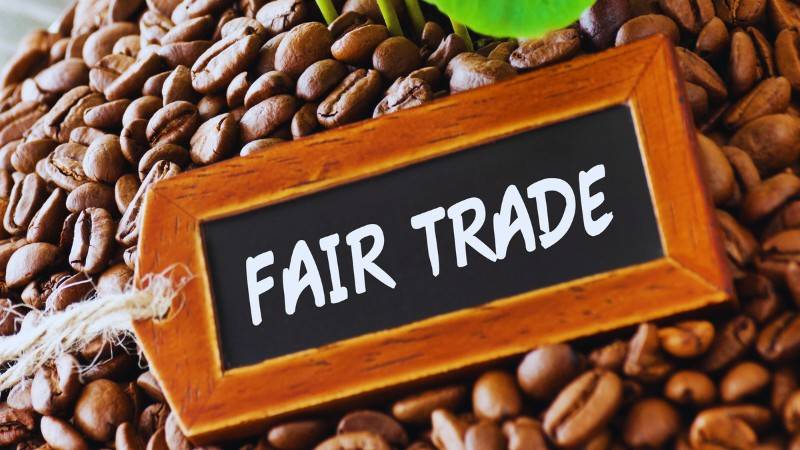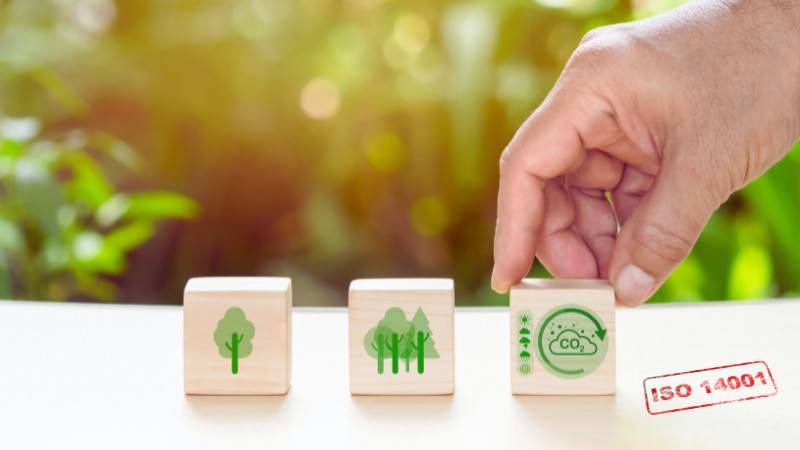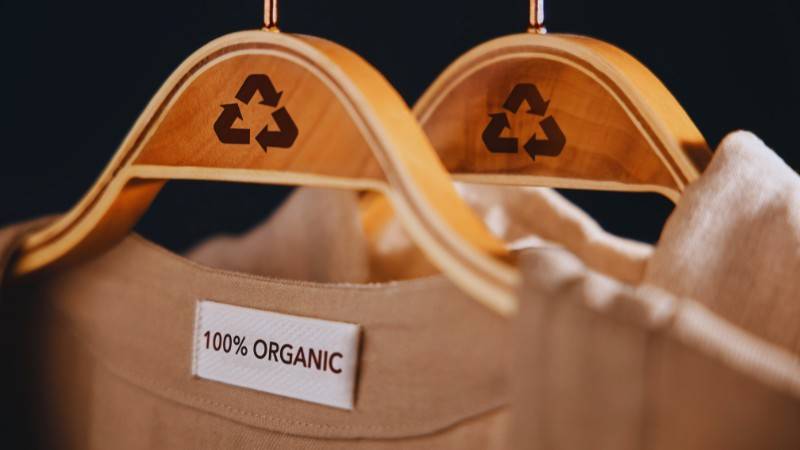Have you ever noticed how everyone’s talking about ethically sourced products these days? It’s not just a trend—it’s a movement! Consumers are more conscious about what they buy and where it comes from.
That’s where ethical certification programs come in. These programs ensure that products meet high standards for social and environmental responsibility. In today’s market, these certifications matter more than ever.
I once bought certified organic coffee. The taste? Incredible! Plus, I felt good knowing it was ethically sourced. So, let’s explore the different types of ethical certifications and why they are becoming a must-have in today’s market.
Fair Trade Certification

Fair Trade certification plays a crucial role in promoting ethical standards. It ensures fair wages, safe working conditions, and sustainable sourcing practices. This certification guarantees producers a fair deal, helping them improve their livelihoods.
Take, for example, Fair Trade coffee and chocolate. These products not only taste great but also support communities. Farmers earn a stable income and invest in local projects like schools and healthcare. It’s a win-win!
Why Is It Important?
It promotes ethical consumption and empowers consumers to make a difference with their purchases. By choosing fair trade products, you support better working conditions and sustainable practices worldwide.
B Corp Certification
B Corp certification takes a holistic approach, covering social, environmental, and economic performance. Ethical companies with this certification are committed to high standards of transparency, accountability, and sustainability.
Well-known B Corp companies like Patagonia and Ben & Jerry’s are leading the way in sustainability. Patagonia promotes environmental conservation through its products, while Ben & Jerry’s supports fair trade and various social causes. Their contributions highlight the impact B Corp companies can make.
Why Is It Important?
It encourages businesses to balance profit with purpose. By choosing B Corp products, consumers support companies dedicated to making a positive difference in the world.
Rainforest Alliance Certified

Rainforest Alliance certification focuses on biodiversity conservation and sustainable livelihoods. It ensures that farms meet rigorous standards for protecting ecosystems and wildlife. Farmers are trained in sustainable practices that benefit both the environment and their communities.
Brands like Lipton, Nespresso, and Chiquita offer Rainforest Alliance certified products. These products not only taste great but also support healthier forests and waterways. They help farmers improve their living conditions and safeguard natural resources.
Why Is It Important?
It promotes a healthier planet and better lives for people. By choosing Rainforest Alliance products, consumers contribute to preserving biodiversity and supporting sustainable agriculture.
Green Business Certification Inc.
Green Business Certification Inc. (GBCI) is dedicated to promoting sustainable business practices. Its mission is to drive the adoption of green building and business standards worldwide. GBCI certifications signify excellence in environmental performance and responsibility.

Key certifications offered by GBCI include:
- LEED (Leadership in Energy and Environmental Design), a benchmark for green building ratings
- WELL, which focuses on enhancing human health within buildings
- SITES, aimed at sustainable landscape development
- TRUE, certifying zero waste practices
- PEER, for sustainable power systems
- ICP, evaluating efficiency improvements in specific buildings
- Parksmart, promoting sustainable parking structure designs
- EDGE, enhancing resource efficiency in buildings
Companies like Starbucks and Google proudly hold GBCI certifications, showcasing their environmental commitment. These certifications help reduce energy consumption, improve indoor air quality, and promote resource efficiency.
Why Is It Important?
It sets a benchmark for sustainability, encouraging businesses to adopt greener practices. By supporting GBCI-certified companies, consumers promote environmental responsibility and healthier living spaces.
ISO 14001
ISO 14001 certification is like getting a gold star for your company’s environmental efforts. It’s a must-have for building an effective environmental management system, helping businesses meet regulations and boost sustainability.
If a company is ethical, wants to run a business and positively impact the planet, ISO 14001 is the guidebook. It helps to manage the environmental footprint, cut waste, save resources, and use less energy. This framework is all about making ongoing improvements.
Why Is It Important?
It pushes companies to adopt green strategies, leading to better compliance and smoother operations. Supporting businesses with this certification means you’re backing a healthier planet and encouraging sustainable practices.

SA8000
SA8000 is a top social accountability standard that focuses on labor rights and workplace conditions. It ensures no child labor, forced labor, or discrimination. It also requires safe working conditions and fair wages.
Companies like Eileen Fisher and Tchibo have achieved SA8000 certification. Their dedication to social responsibility has greatly improved workers’ lives, providing safer workplaces and better pay.
Why Is It Important?
It promotes fair labor practices and high social standards in business. By supporting SA8000-certified companies, consumers help encourage fair and humane workplace practices worldwide.
Cradle to Cradle Certified
Cradle to Cradle certification focuses on sustainability throughout a product’s lifecycle. It promotes safe, recyclable materials and renewable energy use, aiming for zero waste.
Examples of Cradle to Cradle certified products include Herman Miller chairs and Method cleaning products. These items are designed to be eco-friendly, using materials that can be fully recycled or safely composted.
Why Is It Important?
It encourages innovative designs that minimize environmental impact. By choosing Cradle to Cradle certified products, consumers support a circular economy and help reduce waste, fostering a more sustainable future.
Global Organic Textile Standard (GOTS)

The Global Organic Textile Standard (GOTS) ensures textiles are truly organic and responsibly made. It covers the entire supply chain, from harvesting raw materials to environmentally and socially responsible manufacturing.
Popular GOTS-certified brands include Patagonia, Coyuchi, and Pact. These brands offer high-quality, organic textiles that are safer for both people and the planet. Organic textiles reduce exposure to harmful chemicals and support sustainable farming practices.
Why Is It Important?
It guarantees that textiles meet strict environmental and social criteria. By choosing GOTS-certified products, consumers support ethical clothing manufacturing and help protect our ecosystems.
Forest Stewardship Council (FSC)
FSC certification ensures responsible forest management and protects forest ecosystems. It promotes biodiversity, prevents illegal logging, and supports the rights of indigenous people.
Products like IKEA furniture and Kimberly-Clark paper goods carry the FSC label. These brands play a vital role in promoting sustainable forestry by sourcing wood from responsibly managed forests.
Why Is It Important?
It encourages ethical forestry practices, ensuring forests are preserved for future generations. By choosing FSC-certified products, consumers support sustainable forest management and contribute to environmental conservation.
USDA Organic

USDA Organic certification ensures products are made using sustainable practices. The process includes strict guidelines on soil quality, pest control, and the use of additives. This guarantees that products are free from synthetic pesticides and GMOs.
USDA Organic products offer many advantages. They are healthier for consumers, as they avoid harmful chemicals. They also support the environment by promoting sustainable farming practices. Brands like Whole Foods and Horizon Organic carry USDA Organic products, showcasing their commitment to quality and sustainability.
Why Is It Important?
It provides consumers with trusted, high-quality products while encouraging environmentally friendly farming. By choosing USDA Organic, you support sustainable agriculture and a healthier planet.
ECOCERT
ECOCERT certification focuses on organic and eco-friendly production. To get this certification, products must follow strict rules for sustainable farming, limited synthetic substances, and green packaging.
Brands like Weleda and Dr. Bronner’s have ECOCERT certified skincare products. These items use natural ingredients and sustainable methods, making them safe for people and the planet.
Why Is It Important?
It ensures products are truly organic and made with low environmental impact. By choosing ECOCERT products, consumers support sustainable practices and help protect the environment.
1% for the Planet

1% for the Planet is a global movement where businesses pledge to donate 1% of their sales to environmental causes. The process involves partnering with approved non-profits that focus on sustainability, conservation, and environmental advocacy.
Brands like Patagonia and Klean Kanteen are part of this initiative. Patagonia donates to various environmental projects, while Klean Kanteen focuses on reducing single-use plastics. These companies demonstrate a strong commitment to the planet.
Why Is It Important?
It channels significant funding to environmental causes, driving real change. By supporting 1% for the Planet companies, consumers actively contribute to environmental protection and sustainability.
Let’s Support Ethical Businesses
Ethical certifications like Fair Trade, B Corp, and ECOCERT play a vital role in promoting sustainability and responsible practices. These certifications ensure better conditions for workers, protect the environment, and encourage ethical business practices.
Supporting certified products and companies makes a real difference. By choosing certified items, you promote a more sustainable and fair world. Businesses, consider getting certified to show your commitment to ethical standards.
Let’s all be mindful consumers and support the companies that make a positive impact. Together, we can drive change and create a better future for our planet.
